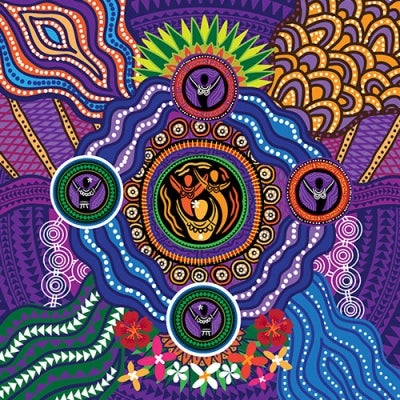Refine results
-
14 December 2012Book page
Chapter 4 - Introduction: Social Justice Report 2009
Homelands still belong to the people, we want to build homes on our land and live there. When we come to the homeland we come back to the peace and quiet. ... It is a much better environment on the homelands, better things for the children.[1] -
15 July 2014Book page
Chapter 3: How do we keep moving forward? A road map for our future
3.1 Introduction In chapters 1 and 2, I look back over the past 20 years that the Social Justice Commissioner position has been in place and think about the journey and our learning over this time. In this chapter, I want to explore how those lessons can take us forward to chart a confident course into the future and how the realisation of our rights can produce long term sustainable… -
Rights and Freedoms3 March 2023Speech
Respect@Work – a focus on our profession
This paper considers the amendments to laws regarding workplace bullying and sexual harassment and the employer’s responsibility implementing recommendations of the Commission’s Respect@Work report (2020). -
Legal6 April 2018Submission
Migration Amendment (Clarification of Jurisdiction) Bill 2018
Downloads Introduction The Australian Human Rights Commission makes this submission to the Senate Legal and Constitutional Affairs Legislation Committee in its Inquiry into the Migration Amendment (Clarification of Jurisdiction) Bill 2018 (Cth) (Bill) introduced by the Australian Government. Summary This Bill proposes to amend Part 8 of the Migration Act 1958 (Cth) (Migration Act) which… -
Disability Rights15 April 2024Webpage

Ambassador Profile - Lisa Stafford
Lisa shares some of her achievements, projects she’s working on, the value of lived experience and tips for employers and people with disability. -
Aboriginal and Torres Strait Islander Social Justice7 December 2020Publication

Wiyi Yani U Thangani Report (2020)
Our women and girls' voices are vital to paving the way for a future I believe all Australians want, deserve and have a right to. Read this report, and listen to their voices. -
Commission – General14 December 2012Webpage
Convention on the Elimination of All Forms of Discrimination Against Women - Human rights at your fingertips - Human rights at your fingertips
On 18 December 1979, the Convention on the Elimination of All Forms of Discrimination against Women was adopted by the United Nations General Assembly. It entered into force as an international treaty on 3 September 1981 after the twentieth country had ratified it. By the tenth anniversary of the Convention in 1989, almost one hundred nations have agreed to be bound by its provisions. -
14 December 2012Book page
Indigenous Deaths in Custody: Chapter 9 Juveniles
Explore a report prepared for the Aboriginal and Torres Strait Islander Commission into the deaths in custody of Indigenous juveniles. -
Aboriginal and Torres Strait Islander Social Justice5 July 2021Opinion piece
Return to country endangered by failure to invest
Covid-19 has triggered the most significant return to country by First Nations people since the homeland movement commenced in the 1960s. Thousands, like myself, returned to remote communities out of necessity. Facing the unknown, our family leaders who could made the courageous decision to gather loved ones and travel out to country, with minimal resources. Importantly, Australian… -
3 January 2014Book page
2 Background and framework for promotion and protection of human rights
2.1 Scope of international obligations During Australia’s review, the Government made a commitment to improving Australia’s monitoring of its international human rights obligations. Australia is a party to seven of the core human rights treaties and maintains a number of reservations under these. The Australian Government made a commitment to conduct a comprehensive review of such… -
14 December 2012Book page
Chapter 2 - Introduction: Social Justice Report 2009
Indigenous imprisonment rates in Australia are unacceptably high. Nationally, Indigenous adults are 13 times more likely to be imprisoned than non-Indigenous people[1] and Indigenous juveniles are 28 times more likely to be placed in juvenile detention than their non-Indigenous counterparts.[2] -
Rights and Freedoms14 December 2012Publication
Implementing the Optional Protocol to the Convention against Torture : Options for Australia
A report to the Australian Human Rights Commission by Professors Richard Harding and Neil Morgan (Centre for Law and Public Policy, The University of Western Australia) -
Legal14 December 2012Webpage
Inquiry into Australia’s Human Rights Dialogues with China and Vietnam (2011)
The Australian Human Rights Commission appreciates the opportunity to provide a submission to the Inquiry into Australia’s Human Rights Dialogues with China and Vietnam. The Commission does not propose responding to all of the terms of reference. Because the Commission’s direct involvement in the Dialogue process is quite limited, it is not in a position to provide highly insightful… -
Disability Rights2 May 2024Webpage

Attracting and recruiting people with disability to your organisation
Discover how to recruit people with disability and demonstrate a commitment to accessibility and inclusion as organisational values. -
Legal15 October 2019Submission
Australian Citizenship Amendment (Citizenship Cessation) Bill 2019 (Cth)
The Australian Human Rights Commission makes this submission to the Parliamentary Joint Committee on Intelligence and Security with respect to its inquiry into the Australian Citizenship Amendment (Citizenship Cessation) Bill 2019. -
Children's Rights26 June 2019Speech
Speech to NSW & ACT Professional Standards Network
A speech by Megan Mitchell covering The Royal Commission’s recommendations, the connection between those recommendations and the National Principles, work we’re doing at the Australian Human Rights Commission in the Child Safe Organisations project, how religious organisations can implement the National Principles, government responses to the Royal Commission’s recommendations and recent… -
Aboriginal and Torres Strait Islander Social Justice9 August 2019Speech
Reflections: Our Health, Our Way conference
Aboriginal and Torres Strait Islander Social Justice Commissioner June Oscar AO addressed the AMSANT Our Health Our Way Conference in the Alice Springs on August 7. The topic was 'Personal Reflection'. Jalangurru maninga balanggarri. Yaningi yatharra ngindaji yuwa muwayi ingirranggu Arrente yani U. I acknowledge the Arrente people, and all of you and your families and elders past, present… -
Commission – General14 December 2012Webpage
International Convention on the Elimination of All Forms of Racial Discrimination - Human rights at your fingertips - Human rights at your fingertips
Considering that the Charter of the United Nations is based on the principles of the dignity and equality inherent in all human beings, and that all Member States have pledged themselves to take joint and separate action, in co-operation with the Organization, for the achievement of one of the purposes of the United Nations which is to promote and encourage universal respect for and observance of… -
14 December 2012Book page
Social Justice Report 2001: Chapter 5: Juvenile diversionary schemes and Indigenous people
On 27 July 2000, the Commonwealth government and the Northern Territory Government signed an agreement for the establishment of a juvenile pre-court diversion scheme in the Northern Territory (NT). This agreement arose specifically as a response to the continued criticism of the NT’s mandatory minimum imprisonment laws and their impact on juveniles and Indigenous people. By establishing the… -
8 December 2020Book page
Part 4: Healthy and engaged lives
Learn how Aboriginal and Torres Strait Islander women and girls face challenges with their health, wellbeing and education and how this is being addressed.
Pagination
- First page « First
- Previous page ‹ Previous
- …
- 6
- 7
- 8
- 9
- Current page 10
- 11
- 12
- 13
- 14
- Next page Next ›
- Last page Last »
